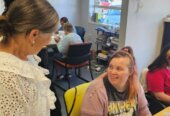Waipā District councillors want more details about the benefits of spending $540,000 on a Covid recovery package and a say in where the remaining cash goes.
At a Strategic Planning and Policy committee last week councillors said information on the recovery package expenditure was not detailed enough.
At the heart of concerns was a fear the $795,000 package was being invested in areas central government had responsibility for.
The funding was announced last December and community organisations in Waipā invited to apply for help with initiatives which supported the district to recover from the effects of the pandemic.
Grahame Webber said he saw benefits early on – but now the economy was rebounding, he did not want to see the funding used as a way for central government to avoid its responsibilities.
“It’s not our space,” he said, arguing some limits should be in place to ensure the council did not take on responsibilities “which we don’t need to”.
Clare St Pierre said that while the report explaining the spending showed organisations which had been helped, “it would have been good to see responses from those directly benefiting”.
Of the original $795,000 package $258,645.38 remains unallocated.
Councillors can see an ideal way to use it – beefing up the fight against criminals.
Deputy mayor Liz Stolwyk wants to see funds used to improve CCTV systems in the town centres of Cambridge and Te Awamutu.
“Since Covid it seems we have seen an increase of vandalism and ram-raids across the region, and I believe it is a direct link to that.”
She said injecting capital into security measures would help police and lead to a reduction in vandalism.
Lou Brown said police regularly sought access to the Te Awamutu RSA surveillance systems to identify people because other systems were not up to standard.
Committee chair Susan O’Regan encouraged more research, suggesting a study of crime data before spending money.
Hazel Barnes said that while an improved CCTV system would identify offenders, more needed to be done in the community to prevent crime happening in the first place.








